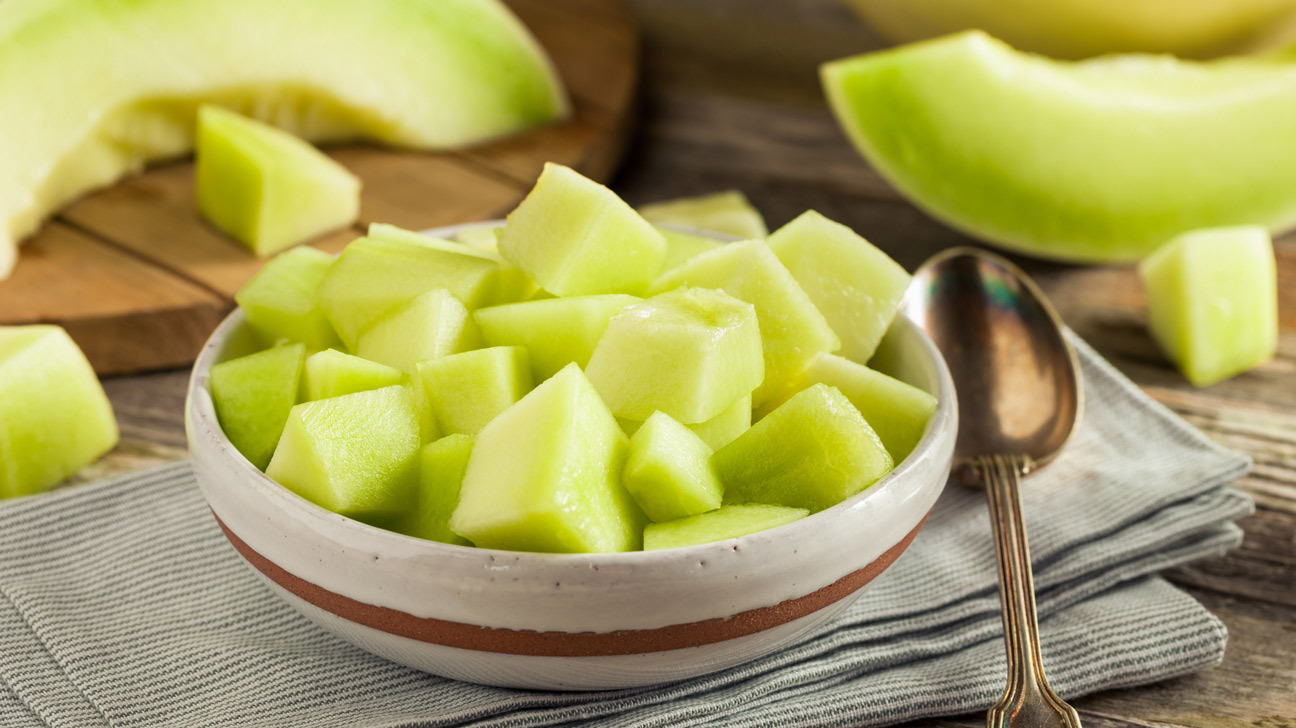
Honeydew melons are more than just a sweet treat on a hot day. Did you know honeydew melons are packed with vitamins and minerals? These juicy fruits are not only delicious but also incredibly nutritious. Originating from the Middle East, honeydews have traveled far and wide to become a favorite in many households. Their smooth, pale green skin and succulent flesh make them a standout in any fruit salad. Whether you enjoy them fresh, in smoothies, or as a dessert, honeydews offer a refreshing burst of flavor. Ready to learn more about this amazing fruit? Let's dive into 25 fascinating facts about honeydew melons!
Key Takeaways:
- Honeydew, a sweet and juicy melon, is low in calories and high in vitamin C and potassium, making it a healthy and delicious snack for those watching their weight and looking to boost their immune system.
- Whether enjoyed fresh, in smoothies, or paired with prosciutto, honeydew offers hydration, antioxidants, and digestive support, making it a versatile and beneficial fruit for overall health and well-being.
What is Honeydew?
Honeydew is a type of melon known for its sweet, juicy flesh. It's a popular fruit in many parts of the world, often enjoyed fresh or in fruit salads. Let's dive into some fascinating facts about honeydew.
-
Honeydew melons belong to the Cucurbitaceae family, which also includes cucumbers, pumpkins, and squash.
-
The flesh of a honeydew melon is typically pale green, but the skin can range from creamy yellow to light green.
-
Honeydew melons are believed to have originated in the Middle East or Western Asia.
-
These melons thrive in warm climates and are commonly grown in countries like the United States, Mexico, and China.
Nutritional Benefits of Honeydew
Honeydew isn't just delicious; it's also packed with nutrients that can benefit your health. Here are some key nutritional facts.
-
Honeydew melons are low in calories, making them a great option for those watching their weight.
-
They are an excellent source of vitamin C, which helps boost the immune system and promotes healthy skin.
-
Honeydew contains potassium, a mineral that helps regulate blood pressure and supports heart health.
-
This fruit is also rich in fiber, aiding in digestion and helping to maintain a healthy gut.
Culinary Uses of Honeydew
Honeydew melons can be used in a variety of dishes, both sweet and savory. Here are some interesting ways to enjoy this versatile fruit.
-
Honeydew can be eaten fresh, either on its own or mixed with other fruits in a salad.
-
It can be blended into smoothies for a refreshing and nutritious drink.
-
Honeydew pairs well with prosciutto, creating a delightful balance of sweet and salty flavors.
-
The melon can be used to make sorbets and other frozen desserts.
Growing Honeydew Melons
Growing your own honeydew melons can be a rewarding experience. Here are some tips and facts about cultivating this fruit.
-
Honeydew melons require a long growing season with plenty of sunshine.
-
They need well-drained soil rich in organic matter to thrive.
-
It's important to water honeydew plants consistently, especially during dry periods.
-
Honeydew melons are typically ready to harvest when they have a sweet aroma and the skin feels slightly soft.
Fun Facts About Honeydew
Honeydew melons have some interesting trivia associated with them. Check out these fun facts.
-
The name "honeydew" is derived from the fruit's sweet, honey-like flavor.
-
Honeydew melons are sometimes called "temptation melons" due to their irresistible taste.
-
In ancient Egypt, honeydew melons were considered a delicacy and were often reserved for royalty.
-
Honeydew is a popular ingredient in Asian cuisine, particularly in desserts and beverages.
Health Benefits of Honeydew
Beyond its nutritional value, honeydew offers several health benefits. Here are some of the ways it can improve your well-being.
-
The high water content in honeydew helps keep you hydrated, especially during hot weather.
-
Honeydew's antioxidants can help protect your cells from damage caused by free radicals.
-
Eating honeydew can support healthy skin due to its vitamin C and water content.
-
The fiber in honeydew aids in digestion and can help prevent constipation.
-
Honeydew's low glycemic index makes it a good choice for people managing their blood sugar levels.
Sweet Takeaways
Honeydew isn't just a tasty treat; it's packed with nutrients and health benefits. From boosting hydration to supporting heart health, this melon does more than satisfy your sweet tooth. It's a versatile fruit, perfect for smoothies, salads, or just enjoying on its own. Plus, honeydew's low-calorie content makes it a guilt-free snack.
Remember, honeydew is best when ripe. Look for a creamy yellow color and a slightly sweet aroma. Store it in the fridge to keep it fresh longer. Whether you're a fruit lover or just looking to add more variety to your diet, honeydew is a fantastic choice.
So next time you're at the grocery store, grab a honeydew. Your taste buds and body will thank you. Enjoy the sweet, juicy goodness and reap the benefits!
Frequently Asked Questions
Was this page helpful?
Our commitment to delivering trustworthy and engaging content is at the heart of what we do. Each fact on our site is contributed by real users like you, bringing a wealth of diverse insights and information. To ensure the highest standards of accuracy and reliability, our dedicated editors meticulously review each submission. This process guarantees that the facts we share are not only fascinating but also credible. Trust in our commitment to quality and authenticity as you explore and learn with us.


